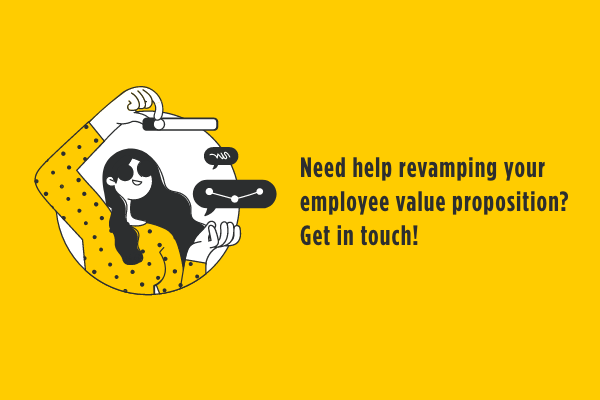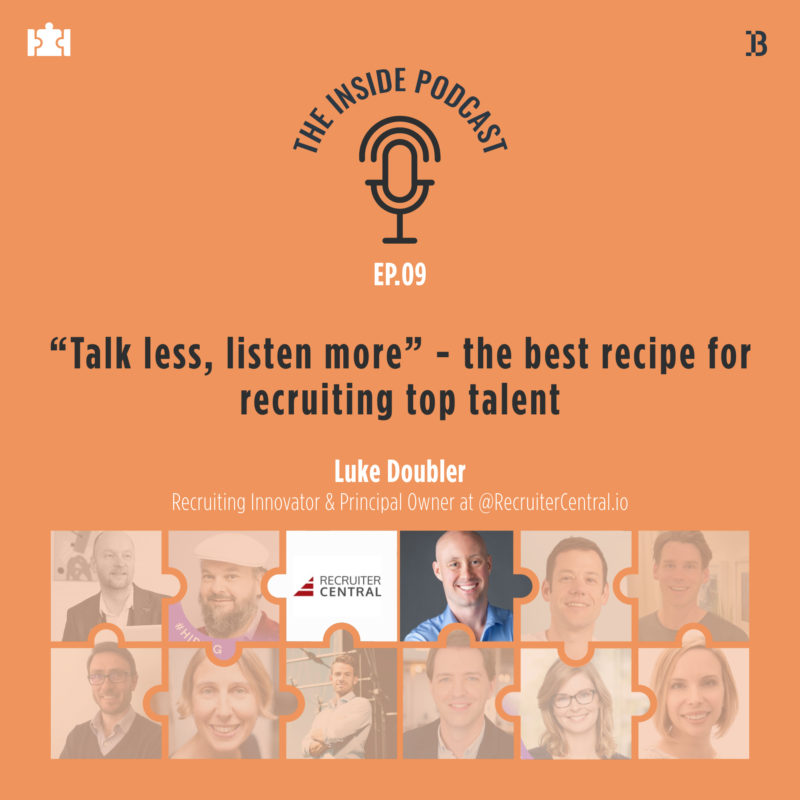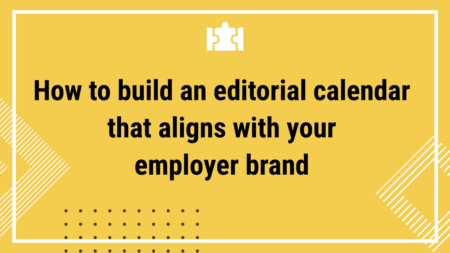Overview
Tune in for Ep.9 of Employer Branding: The Inside Podcast, Season 4!
In this episode, we had the pleasure of speaking with Luke Doubler, principal owner and recruitment specialist at @RecruiterCentral. We talked about how recruiting happens in Europe versus the United States, but also about #purpose, a vital component of the recruitment process.
Check it out on Spotify to learn more about the role of persuasion in recruitment and the importance of having a dedicated Careers Page when seeking to hire and retain top talent.
What you’ll learn by listening
- Recruiting in Europe vs the United States: an expert’s perspective
- Reasons behind today’s recruitment challenges
- Recruiting via job postings: an outdated practice that
- Purpose, a vital component of the recruitment process
- Employee retention in tech: trends to watch out for
- The art of persuasion in recruitment
- The importance of having a dedicated careers page
About the company
Recruiter Central helps clients flourish by providing the talent they need to solve their most complex challenges. Recruiter Central is a search firm that offers permanent and contract placement services in software development and cyber security. We pride ourselves on providing top talent using a combination of new and old sourcing and recruiting tactics along with personalized and engaged customer service. Recruiter Central is different in that we provide value to our clients by producing how-to sourcing videos and blog posts.
Podcast link – Enjoy listening to The Inside Podcast, S04Ep.9!
Podcast transcription
Georgiana: Hi everybody! This is Georgiana with a new episode of Employer Branding: The Inside Podcast. Today, we have another guest from the United States of America. His name is Luke Doubler. Welcome, Luke! Thank you so much for accepting my invitation to take part in this podcast. Luke is a recruitment specialist. And he’s also a thought leader, a business leader, and a blogger. He’s the founder of RecruiterCentral. Please Luke, if you can tell us a little bit about what you do and about what your company does.
Luke Doubler: Greetings from Minneapolis, Minnesota, The United States. Thanks for having me on. My name is Luke Doubler. I own RecruiterCentral. Our website is recruitercentral.io. Recruiter Central is an executive search firm. We have 12 employees. And really we support all niches across the industries from executive recruiting down through various level of skilled workers. The majority of our placements are engineers, some sort of STEM science, technology, math type roles for various clients in the United States. We have the 50 largest publicly traded companies, I have several clients in the Fortune 50. And then clients with 20 people. So our clients range from very big to very small.
Georgiana: Got it. As I was telling you, before we met for this podcast, we are doing an employer branding podcast, right? So mostly I try to speak to people in Western Europe, specifically in Germany and in Romania, where I’m from and where I’m currently living. And we’re trying to explore what Employer Branding looks like in the States, because it’s pretty much what was right. And since recruitment is such an important role in employer branding.
Luke Doubler: Honestly, employer branding is kind of an enigma to a lot of employers in the United States. I think a few things we need to point out is that, you know, kind of employment laws are different here in the United States, whereas in Europe, you know, they don’t have them. So in the United States, essentially, you can fire or quit an employer for any reason, theoretically. And it doesn’t happen that often. And there’s definitely other paths that generally people can take. But people change jobs a lot more in the United States, especially now, especially in the technology sector, you’ll see tenure, 10 years or length of employment, ranging from one to two years.
And that’s not unusual at all. Technologists, developers and various other individuals will often take other roles for various opportunities. Unlike Europe, oftentimes, the recruiting process is long. A lot of times in Europe, people spend their whole careers with specific employers. And that’s certainly not the case with everybody. Yes, but here in the United States, changing jobs is fairly easy. And it’s very much a market right now as of 2022, where employers really are struggling. It’s a candidate’s market, you know, there’s way more job postings, and there’s candidate availability and I would love to talk about that today.

Georgiana: Perfect. Luke, what types of clients do you have? And I’m asking this question, because I’d like to understand how many of the companies that you work with, entertain the idea of increasing retention by using Employer Branding, for example, or recruiting in a rather different or smarter way, if I could say so.
Luke Doubler: Yeah. And so you look at the old way of recruiting and really, that was posting a job and harvesting the people who apply for the job. And really, that’s kind of an archaic way of doing things. Now, if you look at some of the best practices in recruiting across the platform, or across the United States, people are really changing things aggressively. And so no longer just the job posting you see videos of companies showing what it’s like to work at in a place. You see thought leaders up and speaking in front of target audiences, really discussing the employment opportunity, really discussing the overall impact that their company is having, you know, on a greater cause. It’s really no longer just talking about the job, but it’s really talking about the impact.
This role will have on either the company or the greater good it’s changed significantly. And there’s so many different pieces of that have changed. The job descriptions have gotten shorter with more videos in them, more interaction, more links to social media. You have other people than recruiters recruiting for roles. You have hiring managers out there recruiting for roles, you have employment marketers, talking about how great it is to work at a specific company. You have people up in front of you on stages, talking in front of targeted audiences about some new technology that they’re using, or some latest greatest invention that they’ve come up with. There’s just a litany of things that have changed. And I think we could talk about it specifically if you’d like. But, you know, the employers that are losing in this time of post COVID time with the Great Resignation, are the ones that are no longer just relying on a job posting.
Georgiana: Yes, the keyword here being job posting, because this topic we’re touching in some of the content that we create, with our content platform, employer branding.tech. I was wondering, based on your knowledge of the branch so far, how extended? Would you say the role of employer branding manager is in the US at the moment? Well, it’s
Luke Doubler: It’s become more important over the past couple of years. Certainly, if you look at some of the greatest challenges that companies face now, their supply chains, that massive issue. And then almost universally, it’s staffing behind that, you know, how are you going to compete with a market that isn’t growing, and the United States, almost 50 million people quit their job in 2021. And we’re still not back to our post COVID employment rates, we’re still one to 2 million jobs short of where we were in 2019. And, you know, there’s a number of reasons for that. But the simple fact is that the workforce isn’t as big as it was people either are not wanting to be part of it, people retiring, it’s changed. And so employees are competing for a smaller audience, unlike ever before.
And in order to compete for that they have to change things. And so you’re looking at things from, with employment branding, you’re talking about, the whole offering. And so employer branding isn’t just talking about how great a job is, it’s talking about, we have flexible work arrangements, we’re doing X or Y, it’s so much more than just talking about a job is what, how employment branding has evolved. And you’re seeing that everywhere. I mean, you look at some of the biggest companies here in the United States, you know, their job postings have changed aggressively. And in the past couple years, you’ve seen that evolve.
Georgiana: Exactly. Let’s touch a little bit on retention, because in the tech sector, especially, retention tends to be really, really low. We’re talking about 8 to 10 months.
Luke Doubler: In the United States, that’s not really that uncommon.
Georgiana: So I’m wondering, is there a trend that we can predict? Is there are things going to change in this direction in the near future? What do you think?
Luke Doubler: So if you look at technology, most of the people who would call themselves cutting edge technologies, some of the first questions they ask any employer is, you know, tell me about the tech stack. Tell me about my continuous learning opportunities. Tell me about the people I’m working with. And if you look at the change of pace of business, and especially technology, it’s only increasing and it will only get faster. You look at the evolutions, you know, in the open source community, you look at evolutions of the various technologies that are there.
The top candidates that are out there, almost by just the way things change so fast, they have to evolve as well and be with that technology as well. And so, the companies that are retaining people, the best are the ones that are able to stay current with the changes in the industry. So what that looks like is they’re giving their candidates or their employees opportunities for continuous education. They’re allowing them to learn a new codebase or attend a conference or even speak at a conference or get a new certification, or do some sort of continuous training, knowing that technology is evolving faster than it ever has before. And then, they’re using that from an employer branding perspective on their jobs or in videos on their jobs talking about how they’re giving their employees that opportunity to grow and learn a lot of times people don’t leave. Very rarely do people leave companies just for money. It certainly does happen. But it’s not just money.
And so really understanding what your target audience is after, and then playing to those strengths. In the case of technologists, there’s never been one automatic solution for everybody. But generally speaking technologists want to learn; they want to grow, they want to be engaged with cool projects, they want to be paid well, they want to work with a fun and exciting team. And that’s not always the case. But you know, that’s maybe a good cross sample of the section that you’re after here. And so, doing those things, incorporating those things into your daily work is how top companies are retaining, specifically tech talent.
Georgiana: Let’s talk a little bit about The Great Resignation now. Because it’s a topic that everyone’s talking about, right? And especially in the US. Is it a myth, or is it reality?
Luke Doubler: So here’s some stats here. And I’m taking this from SHRM, which is the Society of Human Resource Management (SHRM). It’s really kind of the United States based professional organization. Do you have that in Europe as well?
Georgiana: No.
Luke Doubler: Okay, so SHRM is really kind of one of the large HR type of professional organizations that exist here in the United States. According to them, 50 million workers roughly quit their job last year. And, we’re still 2 million people short of where we were in 2019. And even the numbers that we have, are pulling from individuals who weren’t traditionally in the workforce. So if you look at industries like, skilled labor to fairly unskilled labor, bus drivers, technicians, the only way that our society is operating in United States is people exited retirement and rejoin the workforce or have taken maybe untraditional roles to do that. If it wasn’t for an untraditional worker, we would really be in trouble here in the United States. And there’s a number of factors going on could be COVID, could be excessive unemployment benefits. It could be changes in workforce expectations.
There’s dozens and dozens of reasons why, but it certainly has happened. For example, here in Minneapolis, we have a downtown area, during COVID, occupancy rates of our downtown office buildings were less than 5%. You know, in 2018, 2019, it was 100% or 95%. Those occupancy rates are climbing, but there’s still no more than 20% here in Minneapolis specifically. Now that’s Minneapolis, and I think there’s some echoing of those trends. But certainly, No, I shouldn’t say no, but the vast, vast majority of employers here in the upper Midwest are remote or hybrid type learning environment. And the workforce as we knew it, certainly, I don’t see that ever coming back to be honest with you, it may come back somewhat to normal, but it’s certainly never going to be exactly the same as it was.
Georgiana: Now let’s let’s move on to recruitment, a topic that you’ll enjoy, and so will our listeners. I’m wondering what can recruiters do to persuade candidates to apply for a job?
Luke Doubler: So before the COVID, I had, believe it or not I’m kidding. I made all my hair fall, it’s so stressful being a recruiter. But recruiting go through a tough time right now. And it’s also a good time. Companies are struggling across the board to retain great talent. And the ones that have done it well are the ones that, there’s a lot of if and buts. But if I could put it into one particular theme that the best employers, and specifically the best recruiters, are following as they’re listening to their candidates. And so, if the best recruiters I know talk little and listen more, candidates are gonna tell you why they’re interested in looking and it may not be what you think.
And so you really need to understand from both an employer and a recruiter perspective why is that person taking your call. Or why did that person apply? You don’t want to lead with just spitting out the job and telling them all about the job because maybe that’s not their main motivator. It may be a subset of the specific job or it may just be the employment brand. Or it could be 1000s of different things why the candidate is actually looking. And so the best recruiters that I know are the ones that listen first and really understand why is that person looking. And then you know, if you have something as an employer that can match their goals or their wants or their needs Great, you know, let’s start talking there. But don’t ever assume anything as a recruiter and you don’t, I don’t think it’s a good idea to just lead with talking about, well, we have a great 401k, or we have a great vacation program, because you have no idea if that interests the candidate or not. You might be wasting your time. Tell me about you, what interests you? What are your career goals? What drives drives you? What interests you? What motivates you? What encouraged you to take my call today?
Georgiana: Exactly. What interests you in our company in the end, right? Because it has to be mutual always. It’s not just one side. Let’s say that a job was vacant for 60 days, which I know for a fact is not unusual for some of the jobs that I hear about here in Berlin. What should employers be looking to fix in such a case?
Luke Doubler: Yeah. And so that’s kind of your first red flag as a recruiter, having a job stay open for 30, 60, even 90 days.
Georgiana: To me, it seems like such a long time. But I’m guessing for business, it’s an eternity.
Luke Doubler: Yeah, if it’s a critical role. In 2017 – 2018, that would have been a massive red flag from a talent acquisition leader or from an HR perspective. What’s going on now? It’s more common, but as an agency recruiter, the first question we need to understand is why. And a lot of times, HR and hiring managers always go to ‘Well, it’s a candidate flow issue, we don’t have enough candidates’. We need more candidates. But the job has been open for that long, that tells me something’s off. What is off, you know, we don’t know as it could be 1000 different things. And that’s where we really value ourselves from an employment branding perspective, from a recruitment perspective, is really understanding the why. If it’s been open for 60 days, 90 days, there’s something off and so really, really dig in to try to understand. Is it the compensation, is the employment branding? Is it the hiring manager that doesn’t know how to interview? Is there something wrong with the process?
Is there something off? So as recruiters, we have the option, we have the privilege of being in the market, understanding current trends, understanding compensation, understanding what’s going on market trend wise, and being able to bring that to the table. And so when we come to an intake session or strategy session with the hiring manager, a lot of times we have Inklings about what may be going on, it’s always very helpful to talk to HR real quick to get into second opinion, but then using data to really help persuade the conversation. I know, one of our clients here just yesterday, they’re asking for a plant manager in a rural location, and they wanted to pay a certain amount, and that certain amount that they’re looking to pay was about 40% under market value, it was just way off. And you couldn’t tell the hiring manager that but you can also show data, so other than showing the company data, which we did, you know, five or six ideal profiles of candidates that you’d be like, Yeah, I want to interview them. Why don’t you say, Well, you know, this is what they’re making in the market. This is what they could command from a cost perspective, and changing the conversation with facts and data versus just throwing a resume at them and seeing what sticks.
Georgiana: Of course, of course, you know, coming back to employer branding a little bit, how important would you say a careers page is for a company? And what does a good career page look like?
Luke Doubler: Yeah, there’s a lot of themes with with career pages. And, and I think that you can ask an individual what they think of a career page, but it really doesn’t matter unless it’s the target audience that you’re looking to put your message in front of. So for example, let’s say, a technology company, and I’m looking to hire top technologists, you know, as a recruiter doesn’t need to appeal to me, not so much, you know, does it appeal to technologists? And so one of the ways that we like to do that is finding some of the best candidates or clients or employees that we have, and asking them what they think of it. What’s important to them, as technologists.
Are you talking about the tech stack? Are you talking about things that you’re building? Are you talking about what Agile which is a software release methodology that you use? Are you talking to your target audience, and so from a recruiting perspective, it’s finding your target audience and putting your message into there. And so it may not appeal to everybody and that’s fine. It needs to appeal to the people you’re looking to hire. A lot of times I see companies with subdivided career sections, and so they’ll have an engineering team software engineering that just talks about software engineering and all the things going on there. And then you have supply chain, generally speaking, themes that are relevant to supply chain people may not be relevant to engineering people.
And so knowing your target audience and then speaking to them, furthermore, being a lot more proactive with your employment branding message. And so rather than creating an awesome employment branding landing page, you need to think about, well, where’s your target audience? And then also be putting your message there. Where are they congregating? What are they talking about? Where are they meeting? So putting your message in meetups, having some of your top performers maybe contribute to open source on GitHub or StackOverflow, or speaking at a conference in being an ambassador of that employment branding message.
Georgiana: It’s such an easy thing to do in the end. Just ask the people that work with you know, it’s time consuming. Initiate, right? It’s not difficult at all.
Luke Doubler: Well, you don’t assume. I mean, I’m a recruiter. But I don’t think you want me writing code for you. It would be pretty rough. I can just code basic HTML myself. And so, it doesn’t really matter what I think. It matters to top talent who may be passively looking.
Georgiana: Exactly. But it’s always good to include your current employees in company culture, or employment branding, or recruitment marketing initiatives. I think everyone would be much happier. If career pages would have just a little bit of input from the people actually working in the company.
Luke Doubler: That’s the evolution of the job rather than having a stale, stagnant job description. The people are now the job description. They are the walking talking ambassador of the company, you know. They are the attractant to the company. I mean, we’re using the engineering example a lot. But you need to showcase your people. And you can listen to me all day as a recruiter, but you’re not going to be working with me. I’m not going to be driving you and I’m not going to be growing you as a recruiter. What matters is your peers and the people you’re working with every day and you use them, showcase them, display them. That’s the new job description.
Georgiana: Totally. Luke, we’re approaching the end of this discussion. And my last question to you is the following. Can you name two things that can make the life of a tech recruiter, or recruiter in general, easier?
Luke Doubler: Right. And so I would say one, too many recruiters are too dependent on LinkedIn. And I see that as a common theme. Now, I love LinkedIn. And it’s a big part of my life. So shout out to LinkedIn. But if you’re be in a one dimensional InMail, sending recruiter, you’re going to be facing a lot of heartache and not be making a lot of placements, you’ll get some. But you won’t be considered, you know, high performing. And so, learn other tools besides LinkedIn, and how to learn the tools is a lot easier than you might think. What we do as recruiters isn’t brain surgery.
So find two or three engineers that you like, or would be willing to spend time with you and just ask them where they hang out or what they do. You know, what have been some great messages they’ve gotten from recruiters What have been some, you know, good grief messages I’ve gotten from recruiters. It’s not anything crazy, but to sit down and listen to the top ones and, and spend some time with them learn to speak the way they speak, learn what they’re into learn what drives them. Don’t live in a silo even though a lot of us work remote. Now, as a recruiter, spend as much time with the people that you’re recruiting as as you can. So that’s number one. Don’t be a one dimensional InMail sending recruiter and to dedicate your life to learning and growing.
So I scheduled at least a few hour a few minutes every day to learn something new, whether it be reading an article or speaking on a podcast or talking to somebody else. As a recruiter, it’s our jobs to learn and to be professional recruiters and and with that comes growth and so you know, find your best recruiting blog you can. I would also say that most of the innovation in recruiting doesn’t come from recruiting itself. A lot of our inspiration comes from others. So maybe an actual brand marketer or an SEO or search engine optimization expert, or digital marketing expert. I encourage you as a recruiter to find a subject matter expert outside of recruiting that can lend some of their skill sets to recruiting and use that to drive innovation in your own industry.
Georgiana: And I think that’s available for all of us right, looking for inspiration elsewhere and find it where you wouldn’t expect to actually find it. Wow, this has been super valuable input.
Luke, thank you so much for talking to us today. I wish you all the best and yeah, let’s let’s stay in touch.
Luke Doubler: Thank you for your time. Good luck, everybody.
This was Employer Branding: The Inside Podcast. You can find our podcasts on Spotify on Apple podcasts and content on employer branding-related things on employerbranding.tech. Until the next time, stay tuned.







